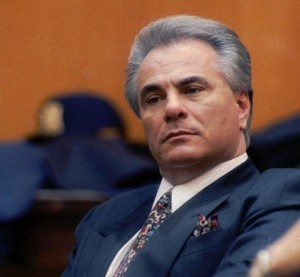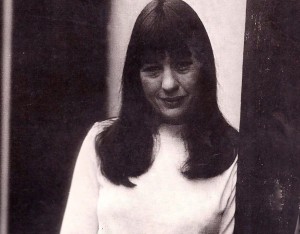Robert Durst’s arrest earlier this month, on the eve of the finale of the documentary that catapulted his case back into the zeitgeist, struck some as suspicious. Could the timeline of an HBO show so overtly influence the actions of law enforcement? If the Los Angeles District Attorney’s office really had a solid case, why didn’t they act sooner?
“They suddenly decided that they had a case against this guy on the night [before] the documentary is broadcast?” asked Robert Reuland, a former senior assistant district attorney in the Homicide Bureau for Kings County who now works as a criminal defense lawyer. “Sounds to me like someone is embarrassed and decided they had to do something about it.”
Reuland’s skepticism is shared by Dick DeGuerin, the legendary Texas litigator who got Durst off in the trial for the death of Morris Black back in 2003 and who will likely head up his defense team in Los Angeles, where Durst is being charged with murder in the execution-style killing of his friend Susan Berman. At a news conference this month, DeGuerin claimed that Durst was arrested “not because of facts,” but because of “The Jinx: The Life and Deaths of Robert Durst.”
To get a sense of the key issues to watch out for in Durst’s murder trial, The Real Deal spoke with criminal defense attorneys who’ve represented high-profile and controversial clients.
Killed them all, of course
Much speculation centers on the explosive audio recording heard in the last scene of “The Jinx,” in which Durst utters the words: “Killed them all, of course.” Its admissibility as evidence is in question, given that Durst appeared to be unaware his microphone was live, and that the meaning of private mumblings isn’t as straightforward as an answer to a question.
But Benjamin Brafman, who has represented Michael Jackson, Sean “Diddy”’ Combs and real estate mogul Charles Kushner, pointed out a more technical issue that stands in the way of admission: the statement refers to multiple murders.
“They may have difficulty getting a judge to admit it in any one specific trial because it implies involvement in crimes that he may never have been charged with,” he said. “If you admit it in the Berman case, you would have to redact it and take out the words ‘them all.’ If you remove the words ‘them all,’ it has no meaning whatsoever.”
[vision_pullquote style=”1″ align=””] “If you admit it in the Berman case, you would have to redact it and take out the words ‘them all.’ If you remove the words ‘them all,’ it has no meaning whatsoever.” [/vision_pullquote]
Despite these challenges, the attorneys concurred that the utterance will ultimately be admitted — or that the argument against admission will be an “uphill climb,” according to Gerald Shargel, who got mafioso John Gotti acquitted in 1990 on charges of shooting a labor union official.
If the statement is admitted, the focus will shift to the context in which it was said. Shargel believes that “The Jinx” and its creators Andrew Jarecki and Marc Smerling will play a central role in the trial.
“Jurors may be offended by the fact that the filmmakers played the role that they did… [they] may find that the investigation was run in an underhanded way,” he said. But the potential for distaste, Shargel believes, won’t do significant damage to the prosecution’s case.

John Gotti
Anthony Falangetti, who worked in the Los Angeles District Attorney’s office for 14 years, said that if he were the defense, he would not only skewer the documentary as fictionalized and staged – something DeGuerin is already busy doing — but would also question exactly how the recording came about, and whether Jarecki and his crew made a habit of keeping the tape rolling while Durst believed his microphone was off.
“How much other footage or moments are there that were never actually aired but ended up on an editing floor?” he asked. “Then the question is, ‘is this something that the producers and directors did during the course of the show, more times than we know about, because they were looking for something juicy and didn’t tell him?’ That’s how you develop the foundations to exclude this evidence as ill-gotten.”
Falangetti did add, however, that it is tougher to prove an individual obtained ill-gotten evidence than an official. But even if the evidence is not excluded, he said arguments like these could serve to discredit the filmmakers in the jury’s eyes.
Los Angeles police detectives told the Los Angeles Times that two handwriting experts have linked Durst to a letter alerting authorities to a “cadaver” at Berman’s home. The link between this letter and Durst was, of course, first brought up on “The Jinx.” Brafman said that the letter will prove to be far more problematic for Durst than the audio recording, but that his defense will claim the connection is tenuous and that handwriting evidence could easily have been fabricated.
Jarecki and Smerling said in a statement that it was “not appropriate” for them to comment, given that they will likely be witnesses in the trial.
All eyes on me

Susan Berman
DeGuerin could make the argument in court that media attention helped contribute to Durst’s arrest – the same argument he’s made in appearances this month. Media attention was a theme for Durst’s defense in the Morris Black trial as well, with DeGuerin arguing back then that Jeanine Pirro, the Westchester County District Attorney at the time, drove Durst to go into hiding by vilifying him publicly.
“The crux of his [DeGuerin’s] argument is going to be lack of proof, but he could also take some shots at the DA for pandering to the press and rushing the judgment,” Reuland said.
[vision_pullquote style=”1″ align=”right”] “A judge is not going to be particularly sympathetic about publicity that a defendant himself created.” [/vision_pullquote]
But Brafman believes that this time, that argument is likely to fall flat, as Durst actively sought out that attention.
“A judge is not going to be particularly sympathetic about publicity that a defendant himself created, because he did not have to participate in this show,” Brafman said. “It was a terribly, terribly stupid thing for him to do to agree to this interview.”
Beyond reasonable doubt
In terms of jury selection, attorneys differed on what they would be looking for. While Falangetti would look for people who had heard as little as possible about Robert Durst so that he could mold them, Reuland said, “If someone comes on your jury panel and is unfamiliar with something that pretty much everyone knows about, you don’t want that person on your jury.”
Brafman also noted that potential jurors aren’t always honest about their preexisting knowledge of a defendant. “People will say they have never seen the documentary and they may not be telling the truth, they may want to serve on a celebrity trial.”
Reuland agreed that an attorney’s power is somewhat limited here. “Jurors are really selecting or deselecting themselves,” he said, by projecting an image that is either judicious or biased.
When asked to predict the outcome of the case, none of the attorneys were game.
“Predictions in California murder cases aren’t worth much,” Shargel said.
